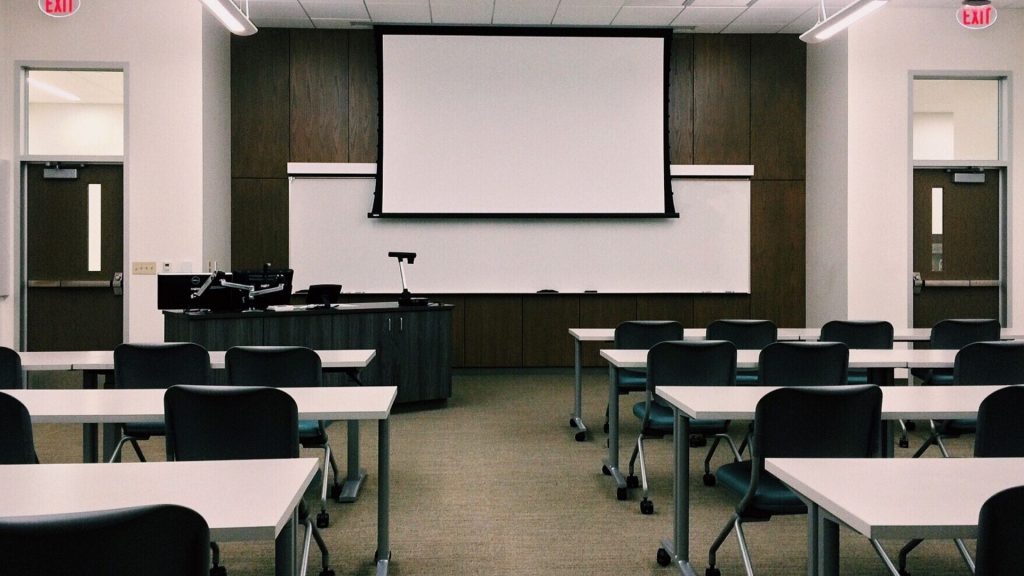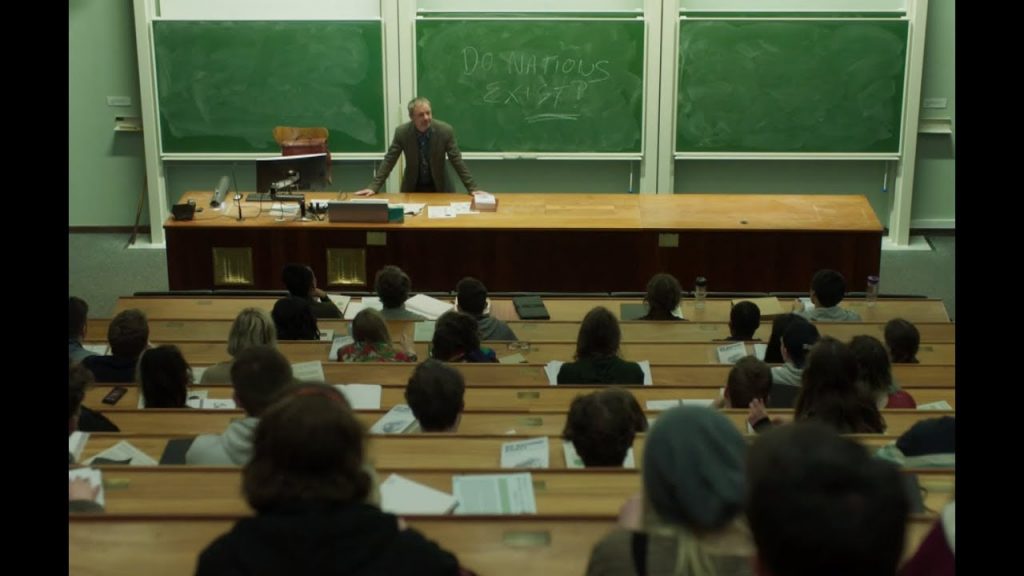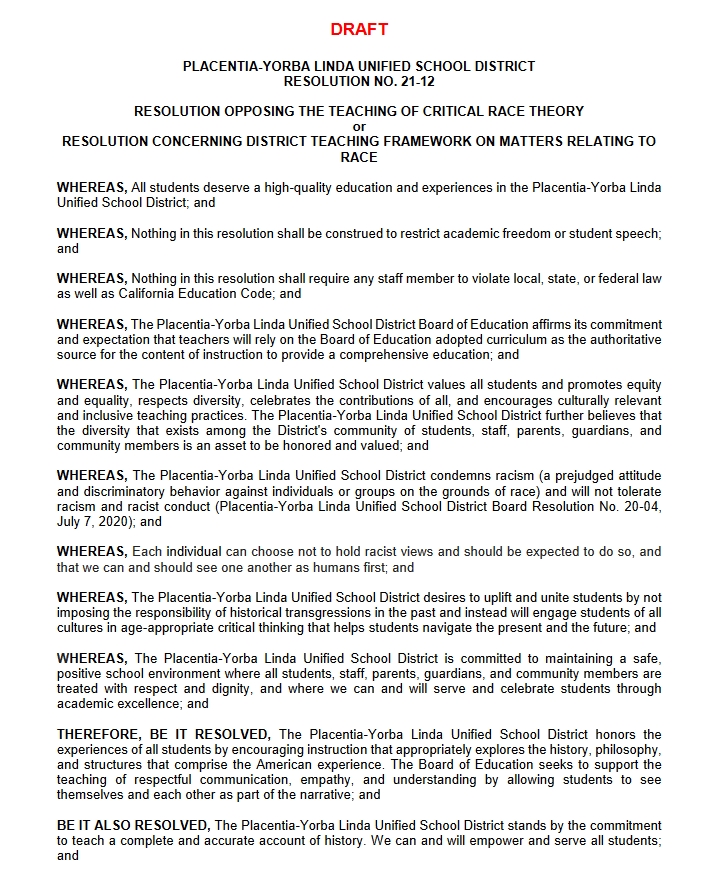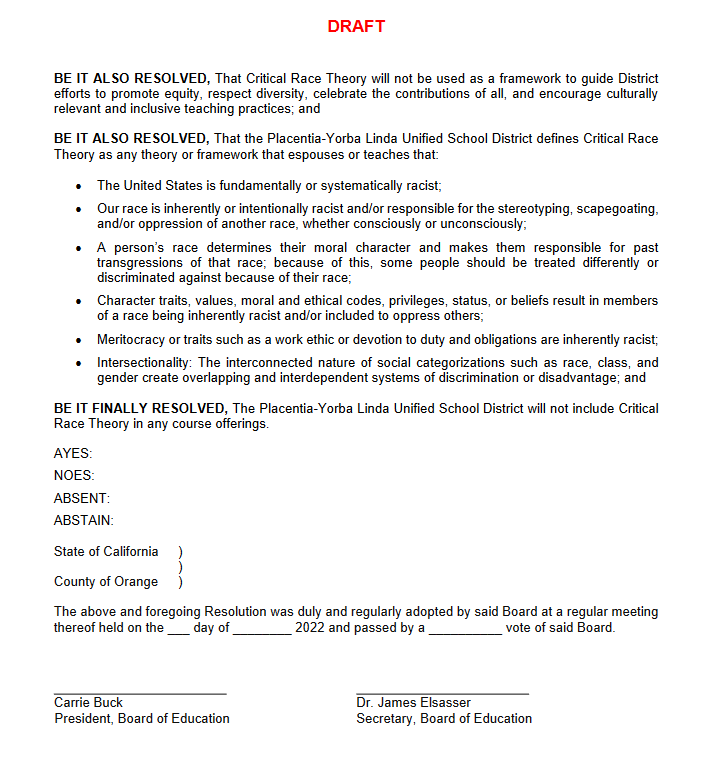School Board Bans CRT District Wide, Instead Of Waiting On State
A school board took matters into their own hands as they banned CRT from public schools, overstepping state laws.

One school board in California has decided waiting around was not in the best interest of those they were elected to serve. Trustees of the Placentia-Yorba Linda Unified School District, located in southern California, have put together a proposal that will get a final vote on April 5. Their intent – to ban any K-12 teachings that revolve around critical race theory (CRT), despite the fact that school officials continue to claim it is not being taught in the K-12 education system.
The school board’s proposal to ban anything resembling CRT in schools has been met with mixed reactions, although the written proposal explains exactly the intent of the ban. Many, though, see it through a different lens. Some parents fear that if the proposal were to be made permanent that it could cause students to lose Advanced Placement classes.
It isn’t only the loss of the AP classes that has parents and students worried about the school board proposal, it is also the loss of the AP designation that is of concern, especially to those students who have completed an AP class. AP classes were weighted to count higher than non-AP classes, which means losing that designation would cause students’ grade point average (GPA) to drop. The reason many students take AP classes is so they can boost their GPA to give them a better chance of getting into the college of their choice.

AP classes and designation aside, some outraged parents claim the school board’s attempted ban on CRT teachings will silence student voices. They say that conversations on inclusion, diversity, equity, and racism will be non-existent if the proposal is passed. But didn’t school officials just say that CRT wasn’t being taught in classrooms?
One district parent, Miquel Lopez, is against the school board’s decision as she feels kids should be having these conversations in class. “Our students are going out into the world unprepared… How do we deal with each other? How do we navigate our various identities around each other? There’s a lot of practical impacts based on what they’re doing and what they’re not doing,” Lopez said via the Voice of OC.
It wasn’t only some parents who were against the school board CRT ban proposal. Literary and rights advocacy group PEN America also disagreed with the proposed ban and said as much in an open letter sent to the school district trustees by Jonathan Friedman, the group’s Director of Free Expression and Education. In part, the letter read: “By shutting off students from even being exposed to a particular academic framework analyzing race and racism, ideological bans like the one proposed by this Resolution essentially guarantee that these students will be worse equipped to engage in societal conversations about race and racism in their lives.” But again, CRT isn’t being taught in schools, right?


As much outcry against the proposed CRT ban by the school board, there has been just as much backing. A number of concerned parents spoke out in favor of the ban, saying that CRT is not only divisive, but it puts white students in the crosshairs of racism claiming they are racist based on their skin color. One Placentia parent was direct in her backing of the proposal.
“Critical Race Theory promotes bigotry, antagonism, and hate and undermines and exploits America’s unique and successful fusion of diversity,” explained Gina Kolb during a December school board meeting. Her sentiments were echoed by many at that meeting. One trustee, Shawn Youngblood, said that if students wish to explore CRT classes in college, then they should be allowed to do so. But, he said, teaching CRT to K-12 students is divisive.
The battle to remove CRT in public schools across the country has been ongoing for some time now. There have been numerous intense debates, with both sides making relevant points even though, according to the many siding with CRT teachings, claim that it isn’t being taught in K-12 public schools. So, if it isn’t, why all the hoopla surrounding it? Why have so many states either passed legislation or have bills being considered regarding the banning of CRT in public schools?
As the fight continues, out in California, Governor Gavin Newsom recently signed in legislation that states that beginning in 2025-26, at least one semester-long ethnic studies course will be offered in all high schools across the state. His bill also states that starting with the state’s graduating class of 2029-30, that ethnic studies will become a graduation requirement. The problem as it is at the moment is the state has yet to truly define what an “ethnic studies” course will look like. The battle rages on. In southern California, the Placentia-Yorba Linda school board has made it crystal clear where they stand on CRT. In a couple of weeks, they will decide if the proposed ban becomes permanent.



